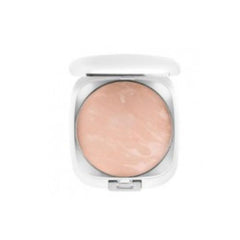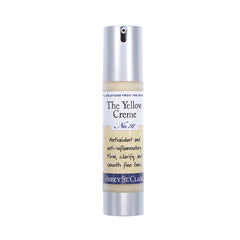Cold Air, Dry Skin: 5 Remedies for Winter Itch
Winter is officially in full swing. Whether your climate is cloudy, sunny, windy, or snowy, chances are good that temperatures have dropped and outdoor humidity has plummeted. Indoors, heaters in our homes and workplaces run full-blast for months to keep us protected from the icy chill. With so little moisture in the air, it’s no surprise that breakouts of dry, itchy skin affect so many of us each winter.
Quick trips between your front door and your car blast your face and lips with icy wind, and even a short walk without gloves leaves your hands vulnerable to the harsh effects of this frigid season. You might think you’re getting a good night’s sleep thanks to the space heater that’s keeping you toasty-warm, but your throat and sinuses may be parched from the dehydrated air!
What’s the effect of all this dry air on your skin? As you’ve no doubt learned, the human body is made of up to 70% water, but you might be surprised to learn that your skin loses around 25% of its ability to retain humidity during the winter months. Just as water evaporates from the air, cold weather draws moisture straight out of your skin, sometimes leaving you with a dreaded case of “winter itch.”
Luckily, there are several easy ways to deal with unpleasant breakouts of dry winter skin. Read on for our top 5 tips to prevent dry skin in winter!
What is Winter Itch?
We’ve all experienced some form of dry winter skin breakouts, along with the maddening itch that accompanies truly parched skin. Some of the most vulnerable places include your hands, legs, lips, and face. Your hands are often exposed to the wind and cold without gloves, and it doesn’t take long for the skin around your knuckles to become raw and red.
Flakes of skin will begin to peel away if your hands become dry enough, leaving you with cracks and edges that can snag painfully on rough fabrics. Your legs are also prone to dryness; the hot water and abrasion from a shave in the shower strip away oils and moisture, leaving you with shins that look powdery and dull. Try not to scratch them, it only makes things worse.
When the air is especially arid, you’ve probably experienced hair that goes suddenly frizzy, with fly-aways you can’t seem to tame. The more you brush, the more static builds up in your hair, causing it to float maddeningly around your face.
We’ve all experienced the pain of chapped lips, where instead of a soft, springy surface, your lips are coated in jagged flakes that tear and peel. They can become so dry that they literally split, leaving the you with painful and unsightly sores.
Winter is particularly hard on the all of the soft and sensitive skin around your face. Even if your skin type is typically oily, you may find your cheeks turning red and ruddy. And who hasn’t seen those tiny flakes that fall from your forehead when you scratch a particularly itchy spot?
Despite the bounty of products that claim to target dry skin, it’s important to be aware of exactly what you’re buying. Many mass-produced offerings are loaded with chemicals and artificial ingredients that strip hydration from skin, which can lead to a vicious cycle of constantly needing to reapply the product.
Most commercial soaps remove glycerin but add fragrance and chemical ingredients that can irritate your skin, eradicating moisture and leaving your skin feeling tight and stretched. And although some of the large beauty brands sell facial oil products that say they contain “natural oils,” there are many added chemicals that are decidedly not natural, and may not be the best choice to soothe the sensitive skin around your face.
But don’t despair. From simple hydration to luxurious hydrosol, there are simple steps you can take to battle winter itch. Try a few of our favorites below, and start relieving your dry skin immediately.
How to Care for Dry Skin in Winter
- Wear layers that protect your vulnerable skin.
- Choose high-quality gloves that insulate your hands, as opposed to a pair made from chenille or loosely knitted yarn, which lets in air (and lets out moisture).
- Before you step outside, wrap a scarf around your neck. If it’s windy, use it to cover the lower half of your face. Not only does a scarf look trendy, but it will protect your nose, cheeks, lips, and chin from the abrasive wind. (Don’t forget to apply a moisturizer with SPF before you step outside; this is good practice in all weather conditions!)
- Never underestimate the impact of a warm hat and a thick pair of socks. Heat escapes from our extremities, but so does moisture. Cover up the pores all the way from your scalp to your toes. This keeps water in, helping your skin stay springy and hydrated.
- Use the right soap.
- Avoid deodorizing and antibacterial soaps. These varieties tend to be harsh and irritating, and can exacerbate problems with dry, itchy skin. That “Island Breeze” soap you keep by the kitchen sink might smell good, but it’s really not worth it.
- The best soaps are hand-made varieties that are gentle on skin and contain the highest quality natural ingredients. Skip the foamy commercial soaps that are full of chemicals, and try a bar of luxurious, creamy kettle soap instead.
- For example, our Kettle Soaps are made with organic and natural botanical oils with no artificial substances. They offer deep cleansing with a gentle lather, and you will love the way they leave your skin soft and moisturized.
- Add humidity to your daily life.
- We’ve all been told how important it is to drink water, yet recent studies reveal that up to 75% of Americans may be chronically dehydrated. When the air is dry outside, it’s more important than ever to stay well-hydrated on the inside. If you find it hard to keep up your water intake, carrying around a water bottle is an easy way to keep track. We also love this fun idea: keep a small glass beside your kitchen sink, and every time you walk past, fill and drain the cup!
- The heaters have been running and the air in your home is bone-dry; now is the time to use a humidifier. It’s an easy and effective way to drastically increase the moisture levels in your home. If you don’t have a humidifier, you can hang a damp towel from a doorknob in your bedroom to make the air more comfortable. Even a few pans of water set around the house will evaporate and moisten the air around you.
- As tempting as it is to indulge in a hot bath or shower during cold weather, high heat quickly strips away moisture and the protective oils that typically cover your skin. Try to keep the water temperature warm, not hot, for an enjoyable shower that won’t exacerbate dry skin. As a bonus, leaving the door open while you bathe is an easy way to spread humidity from the bathroom to the rest of your home.
- Moisturize with high-quality lotion.
- As with soaps, don’t be tempted by commercial lotions that are packed with added chemicals and overwhelming fragrances. Look for natural products filled with botanicals that won’t irritate your thirsty skin.
- The best lotion for dry, itchy skin in the winter is one that’s thick, rich, and easily absorbed for ultimate hydration. We recommend our Creme de Beurre Ultra Rich Skin Hydration with Neroli Essential Oil. This lotion is smooth as silk, with plant butters and oils that hydrate and soothe with no lingering greasiness.
- For maximum hydration, apply lotion to slightly damp skin after you’ve finished showering. Simply let your skin air dry, and gently pat (don’t rub!) to remove excess water. Spread the lotion across problem areas, and massage it in for skin that is supple, hydrated, and silky smooth.
- Treat yourself to natural facial hydration.
- A hydrosol is aroma-therapeutic water which is produced during the process of distillation of specific plant material to obtain essential oil. It is safe to use undiluted on skin (even for children and pets), and can be added to food, lotions, or sprayed onto pillowcases and textiles for a range of aromatherapy benefits. Hydrosols are an often-overlooked tool in your arsenal against dry skin, and you will love their effect on the sensitive skin around your face.
- Avoid “floral waters” from large beauty brands that are merely waters with fragrance added, along with preservatives and unnecessary chemicals. Instead, seek out products with all-natural ingredients, no chemical additives, and no preservatives.
- Our hydrosols are the most natural of the natural products. As we like to say, our hydrosol products contain “nothing but nature”! The Lavender Hydrosol is particularly beneficial for treating the dry skin around your face in winter. The combination of oil and water is hydrating and intensely moisturizing, and helps to smooth away the rough patches on your chin, cheeks, and forehead. Lavender is a soothing ingredient that provides particular relief for sensitive and stressed skin, and its calming aroma will give your spirits an instant lift.
- Add extra deep hydration with completely natural facial oils. Botanical Oil #1, Heule de Beaute, Rosehip Serum, Carrot Repair Serum, and Rice & Olives Multi-Tasking Oil are dry skin’s best friends. Each of these nourish and repair with “nothing but nature.” Each is made of natural and organic plant oils and essential oils that lock in moisture and leave your skin soft and smooth. The light oils absorb quickly without being greasy. And remember, Rice & Olives Multi-Tasking Oil is an excellent cleanser, facial oil, and body oil.
Winter is here for a few more months, but with vigilant humidifying tactics, nourishing skin oils, and a few spritzes of lavender, you can keep your skin smooth, soft, and hydrated until spring!
Leave a comment
Comments will be approved before showing up.
Also in Abbey St Clare Blog

The Wheel is Turning. Abbey St. Clare has Closed.
Hello Friends,
The wheel is turning. Transitions are on the horizon. It is with regret that after almost twenty years, Abbey St. Clare is winding down as retirement and a relocation take place in the near future. We will continue taking orders through September 15.

Fix These 5 Hair-Washing Mistakes For Healthier Hair
Is your hair feeling brittle? Scalp dry? Locks not as lustrous as you want them to be? It’s possible you’re damaging your hair with five hair-washing mistakes.
If you follow these guidelines, you will see significant improvement in your hair and scalp health.

Pamper Your Skin and Elevate Your Mood With Essential Oils
Have you ever caught a whiff of cinnamon and felt a boost in your mood instantly? Do you feel calmer and more at ease when using lavender lotion before bed? If you said yes, it’s not just a figment of your imagination!
Ask anybody who uses essential oils regularly, and they’ll probably agree: these natural botanicals can have powerful, positive effects on your mood and overall wellness.



